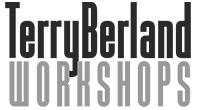Written for The Networker by Terry Berland @berlandcasting.
The acting business is based on so many variables that you don’t have control over. The good news is there are many things you do have control over. I hesitate to share this list of errors because every item seems so obvious to me, but it’s happened too many times that I would be remiss not to share. Getting these things right can make a difference in being considered a trusted professional and, sometimes even getting or losing an audition.
- Attach a resume to your breakdown. Some people do not have a resume attached to their photo submissions. If there is no resume a casting director knows nothing about you. Casting directors are choosing people who they know something about to fulfill a role, even if it’s just a look. You cannot be considered without a resume. Someone who has a resume will be chosen over someone who does not.
- Have more than one photo on your submission profile. As a casting director, I like to look at four or five photos. Several photos show a subtle range of what you look like and who you are.
- Spell names of people you studied with correctly. The acting community is a small community. Most of us casting directors know who all the acting coaches are. When I see a misspelling of an acting teacher I think it’s odd that the actor has studied with this person and are not aware enough to know how the person spells their name…or do they just not care.
- Get the name of the workshop right. Everyone names or calls their workshop something that reflects their branding. I’ve had people call my workshop whatever name they make up and even list the studio that I teach at as the name of the workshop For instance my workshop is “Commercial Acting Workshop. It has the word “acting” in it for a reason; that being I use acting basics and treat it as a short scene If you would list the name as “commercial workshop” it leaves out the word “acting’ which brands my workshop.
- Put contact information on your resume. Yes, I’ve seen resumes without any contact information on them. It’s obvious that no one can reach you with contact information.
- Look like your photo. Your photo should be current. Don’t choose a photo that makes you look prettier or more handsome than you are. You should embrace what you look like.
- Confirm or cancel your appointments online quickly. We (casting director’s) have to come through with a certain amount of choices for our clients. Our clients get very, very upset with us if we don’t. Calling talent to chase down a confirmation takes up a lot of time and is exasperating. If you are not coming, let us know quickly, which will enable us to give someone else an appointment. This will make your fellow actor very happy and save us a lot of agitation.
- Put notes on your submissions if it is requested. A note will make you stand out. We have 4000 or more choices being presented to us in addition to agents and managers pitching clients. You want to stand out.
- Submit for the correct role. Breakdowns give us the capacity to switch you to a different role. After looking at 2000 photos taking the extra step of switching you might come at a moment when we can’t handle one extra moment to meet our deadlines.
- Read the breakdown carefully. I’ve worked on SAG-AFTRA waived projects where there is money listed paid directly from production to talent but talent just see SAG-AFTRA waived contract and never notice the payment. Because I really want the person to come in, I take the time to explain and re-read what the breakdown says. You don’t want to be left out due to time running out.
- Don’t send correspondence without photo recognition. If you are sending something through the mail include a picture postcard or business card with your photo on it. If you are sending something via e mail, include a link to your website, or photo. Maybe our memory needs a little jolt as to what you look like. It can never hurt to show your face. Links should be part of your e-mail signature.
Hopefully, you read over this list and say “I do all those things right” there is nothing for me to learn here. But if there is even one that you can relate to and change, it could make the difference of you having the competitive edge or not.
If you want to sharpen up on your commercial acting technique, follow this link to Terry Berland’s Commercial Acting workshop.









